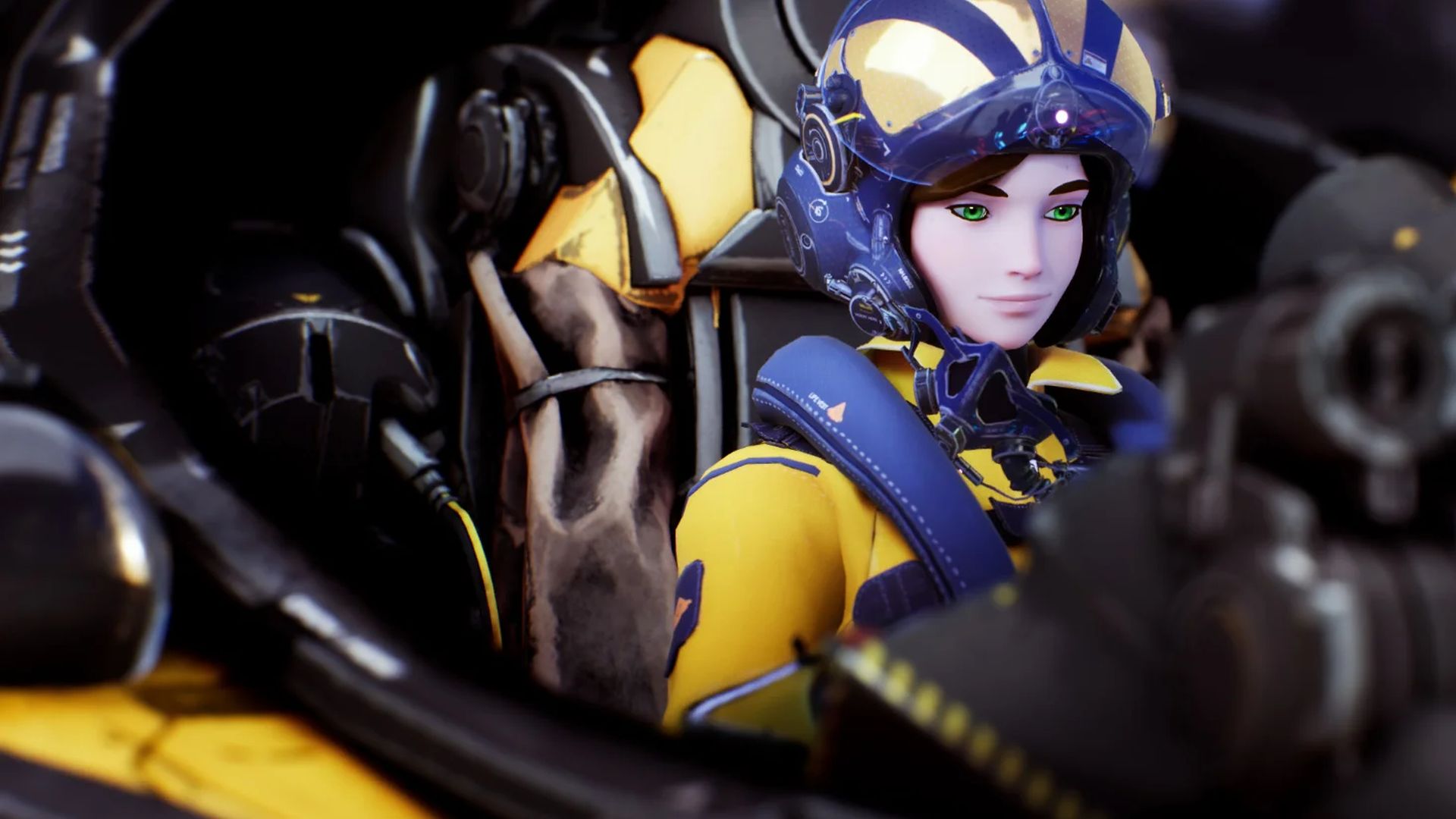
What is it? A Xevious-style shoot 'em up, and a suitable on-ramp to the bullet hell.
Expect to pay $30
Developer Keelworks
Publisher Konami
Reviewed on Windows 11, NVIDIA GeForce RTX 3060 TI, Intel Core i7-12700F, 16 GB RAM
Multiplayer? Yes
Out August 5, 2024
Steam Deck Playable
Link Official site
The average level in Cygni: All Guns Blazing is about 15 minutes long, give or take, but it doesn’t feel that way. It feels like a two-and-a-half hour special effects showcase that ought to have ended with a fade to black and “Directed by Michael Bay” in big, bold letters. Cygni’s audio-visual bombast is difficult to overstate, with its Unreal Engine 4-powered hordes of alien jet fighters screaming toward you from above and below. The sheer number of models, bullets, and particle effects on screen is frequently overwhelming, and if your attention lapses for a moment, you’ll lose all sense of what’s happening.
After just a couple hours of playing, I felt like my senses had been jackhammered to sludge —and it was intoxicating. That might seem like an overreaction to mere action setpieces, but an extravagant, 16:9, superbly polished, graphically souped-up shmup like this is a rare thing indeed. Don’t get me wrong, I love my pixel art, but dodging incoming trains, taking potshots at a flying space whale, and blowing apart sleek alien tanks is riotous when it looks and feels this good. It runs like a dream, too, aside from some frame drops in the especially chaotic final level.
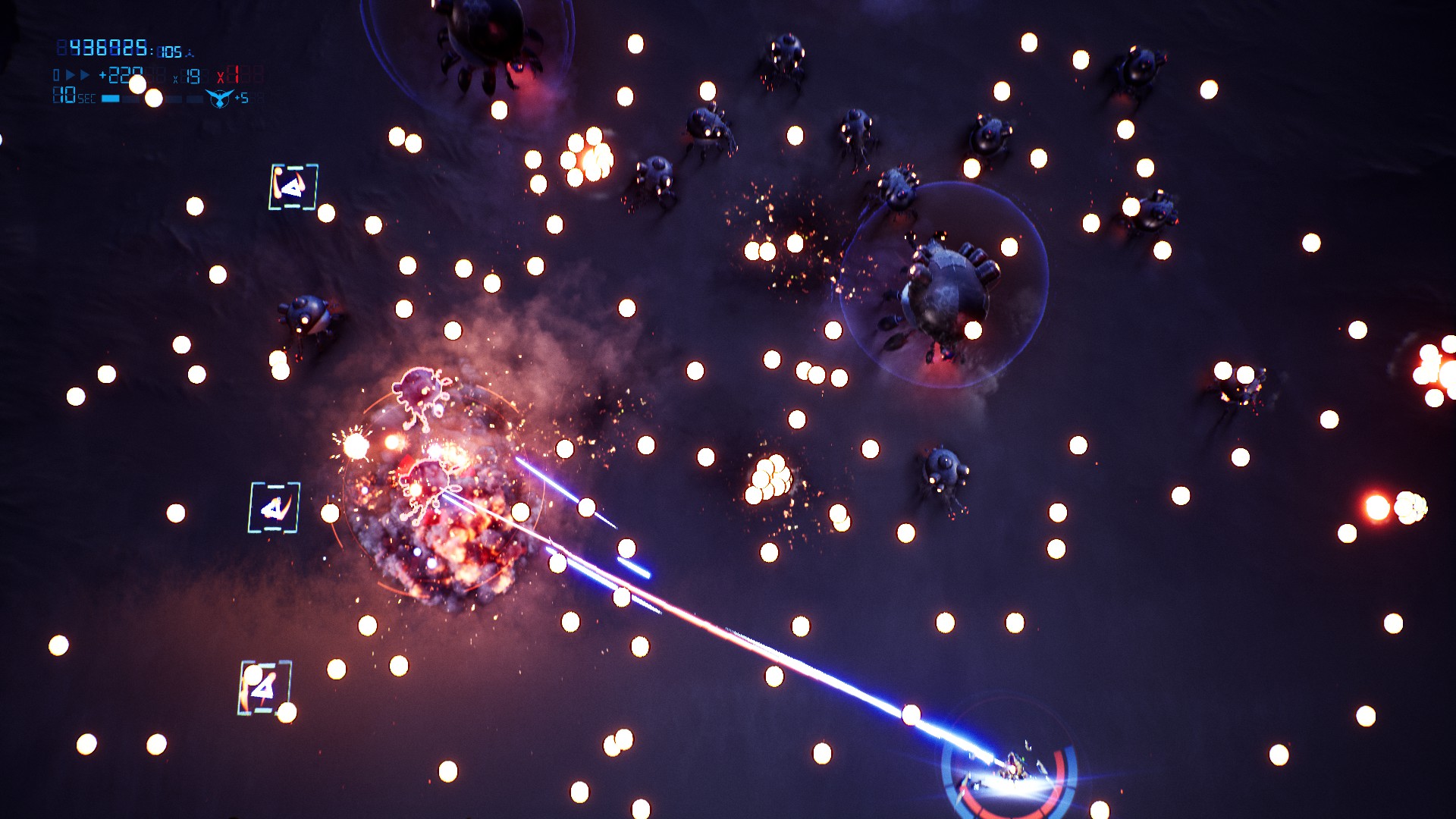
Mechanically, its shoot-’em-up antics will be quite familiar to any fans of Ikaruga or Radiant Silvergun. All the bedlam of a bullet hell is on offer, but its pace is a touch more palatable for those who don’t infuse their tap water with Red Bull. In fact, Cygni is quite accessible for a shmup; in a genre where you typically can only fire straight ahead, the game allows you about 30 degrees of leeway to the left or right, which means you can fire at cheeky angles and comfortably zoom around the field like it’s a twin-stick shooter. You can also take a few hits before you die, which might just come in handy, as the most dangerous enemy in Cygni is also my aforementioned favorite thing about it: visual chaos.
Every moment is spent delousing waves of incoming ships with lasers and rockets, which is standard fare for the style, but where a genre classic might prize clarity and clean, obvious visual cues, Cygni is eager to drown the player in heaps of enemies from every angle. But while it’s easy to miss a few shots and get lost in the tapestry of grinding metal and neon lights, it’s forgiving enough that it never feels inescapable.
Each level starts you off with enough shields to take five hits before a game over, but certain enemies drop extra shields when they die. You can also reroute shield power to your guns, trading a hit point for extra damage and spend that power outright for ultra-powerful rockets, which can hit enemies on your flanks and rear.
You can always trade that damage back for those hit points, but don’t do it in time and you’re toast. Since this is a shmup we’re talking about, you’re usually making these decisions in the span of milliseconds, and it adds a delightful pinch of high-stakes strategy where I just expected undiluted, twitchy action. It gives me the sort of blazing adrenaline rush I assume a dog experiences when I shake a bag of treats.
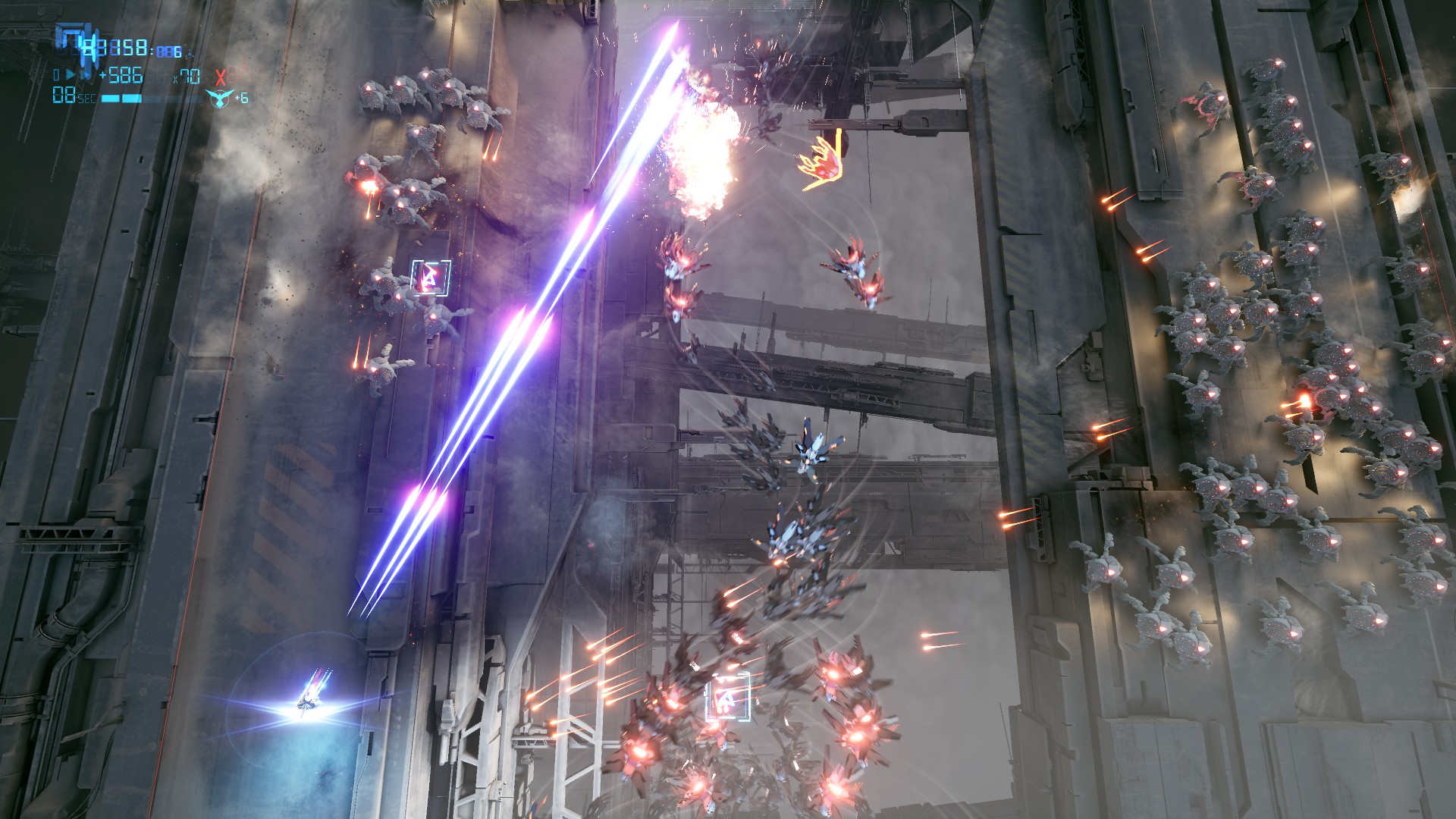
Cygni’s quite generous with these pickups, and admittedly, the wealth of shields littered about trivializes certain sections. While the game is at its best when you have just enough shields to make some decisions with them, it doesn’t strike this balance perfectly, and you’ll sometimes be showered in enough to tank everything on screen and maintain a full damage boost. Maybe this is the game’s way of providing a breather or flexing how many explosions can happen simultaneously, but on repeated playthroughs, these moments bore.
There’s also ground warfare (like Xevious, but a lot busier) perpetually carrying on beneath the life-or-death dogfights on your side of the y-axis. You can use the brief windows of downtime to try and squeeze extra points and free shields out of the cannon fodder below, and you’ll occasionally fend off giant walkers and artillery platforms trying to steal your attention from the air combat. Both your air weapons and ground weapons can home in on targets for less damage or be free-aimed for full damage; another gold nugget of risk-reward that pays huge dividends for effective multitaskers. When I had gotten farther than ever on a particular boss fight that was giving me trouble, I opted to immediately gut my shields and spam rockets at it—while it left me vulnerable to a game over if a single bullet grazed me, the extra salvo was enough to cinch the fight.
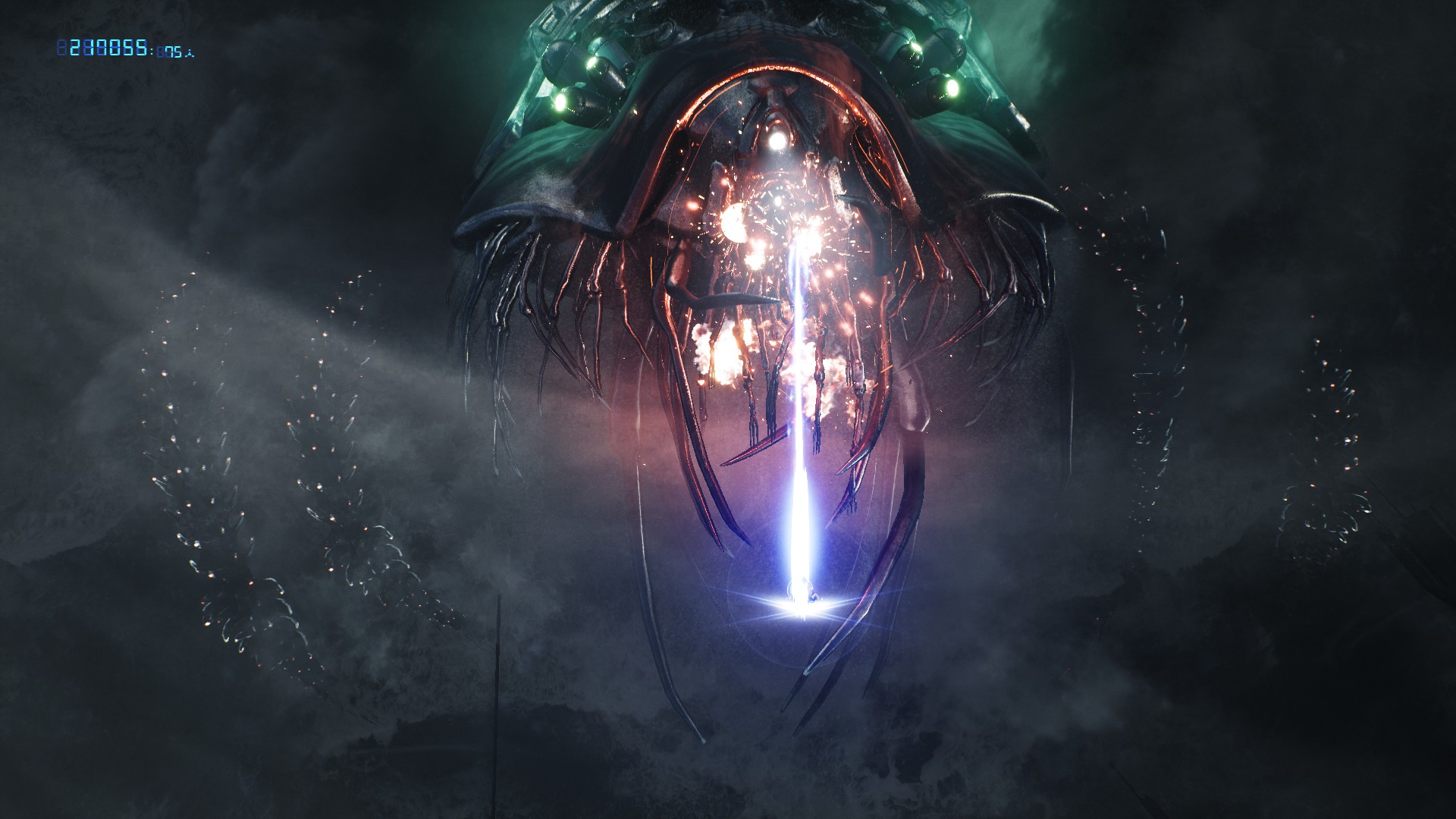
All these extra hit points and homing weapons mean it’s a little gentler than some of the old-school greats, but I loved how it always seemed to egg on daredevil behavior. Despite the torrential downpour of enemy fire, I never felt like I was hunting for the magic pixel where a particular bullet pattern would never hit me; on the contrary, I wanted to fly through the bullet hell to all corners of the screen, hoover up as many extra shields as possible, and immediately convert them into rockets.
The only major waste of potential I found is with its story, which feels odd to say about a shmup. I didn’t go in expecting a plot at all, but the game sandwiches each level in-between a pair of cutscenes and even has a lore library where you can learn about the celestial bodies you paint with strafing runs over the course of the campaign. Unfortunately, there’s not much unique or substantive to dig into, and the cutscenes come off bland—a dispensable bit of context the game doesn’t benefit from.
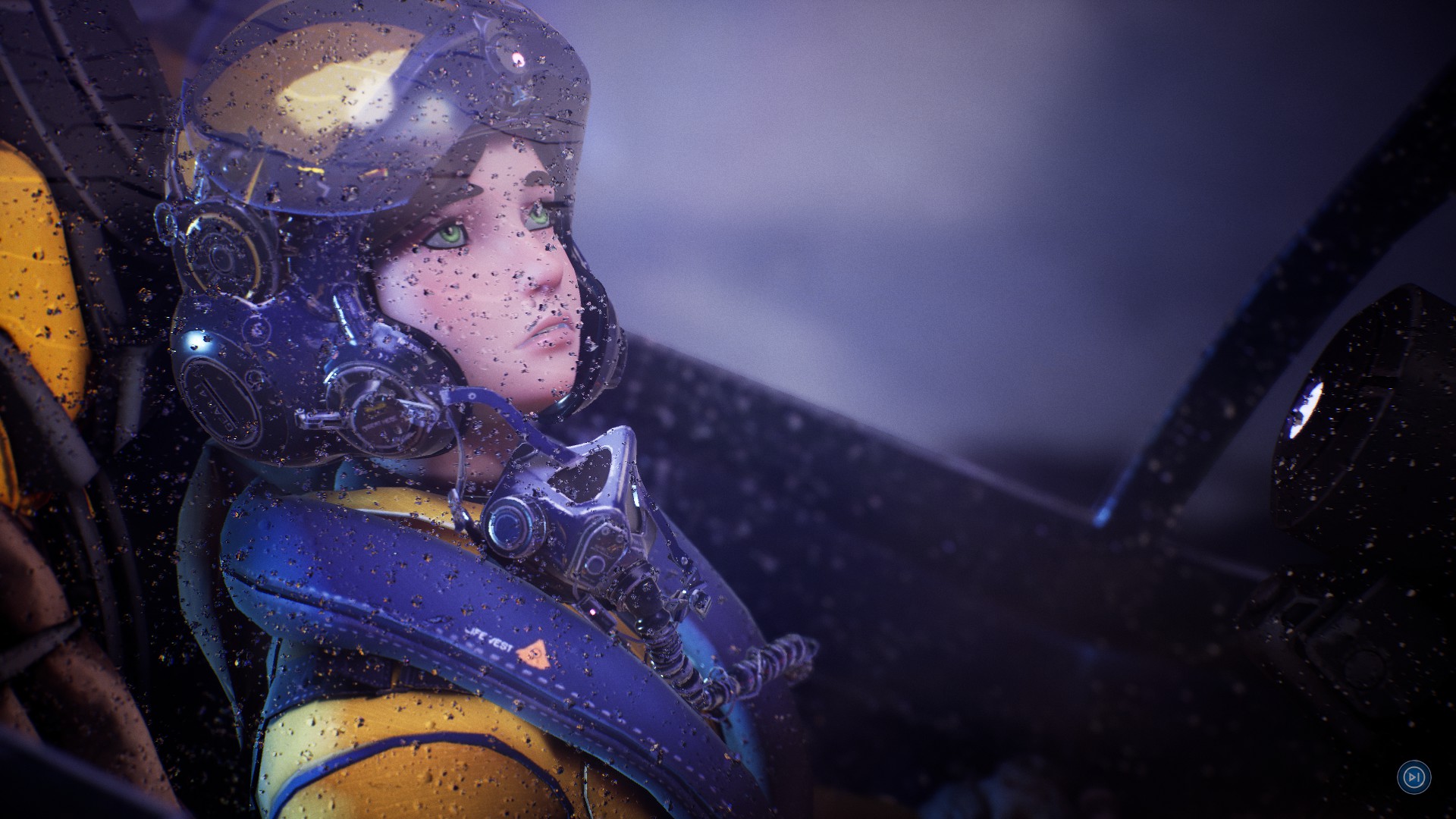
On the flipside, Cygni left me itching for more of its moment-to-moment, despite my minor gripes. It’s a lean playthrough with only seven levels, but the impulse to improve boss times, go through the game with a friend in co-op, and maximize high scores should lend high replayability. Arcade mode is the all-or-nothing endurance test genre veterans will want to look into, but there’s additional postgame tinkering in various equippable upgrades and weapons for your ship. You can even design custom firing patterns for your main air-to-air gun, which is sure to stimulate the imaginations of anyone looking to achieve absolute optimization.
This all culminates in a gorgeous game that offers all the exhilaration of a great bullet hell shooter, but offers the player some unique tools to both make improving easier and reward bold gambits from seasoned shmuppers. Taking down each boss was a shot of catharsis, and as soon as it was over I was headed straight back to arcade mode for another round.







